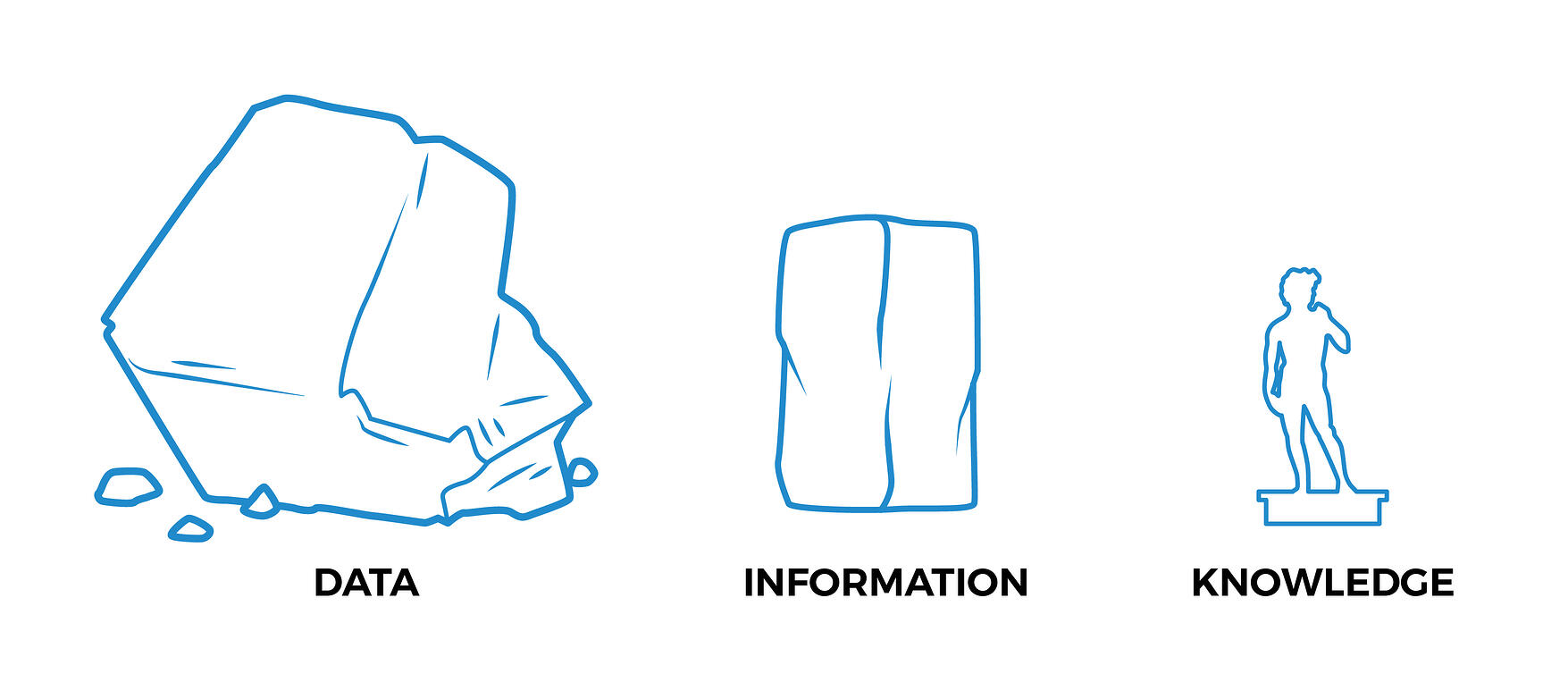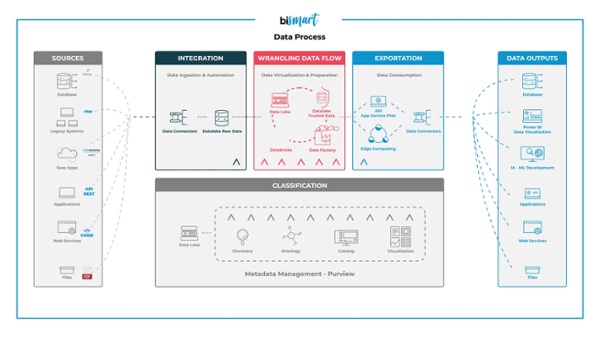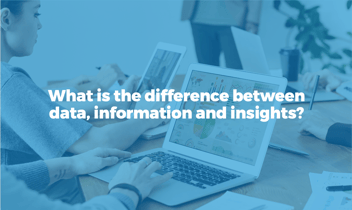What is an insight and why is it essential for a company? We explore how we can transform our data into business insights to make better decisions.
The generation of insights is essential for companies to make informed decisions. Today, making better business decisions depends on transforming data into business insights.
Indeed, data collection is now essential for any business. Data is the raw material that enables companies to make informed decisions. However, data is not information and, by itself, does not generate knowledge.
Data is the raw material through which we obtain information and, through data analytics —among other disciplines— we generate insights.

Despite the fact that companies today have access to and generate more data than ever before in history, 62.2% of companies are still not data-driven or, in other words, are unable to leverage the value of data to optimize their processes and make better decisions.
How is it possible that organizations have access to more data than they need, but are unable to leverage it?
Too many companies focus more on massive data collection than on knowledge generation. In order to be actionable and drive reformational change, data must be transformed into insights. On the other hand, companies must implement a data-driven culture to generate knowledge and have the necessary routines and resources to transform that knowledge into better business decisions and opportunities.
In short, to make data-driven decisions, companies must focus on generating business insights.
Download the checklist to identify real insights
If you want to go beyond the theoretical definition, we have prepared a professional checklist to identify real insights based on methodologies from Gartner and Forrester. It will help you differentiate data from insights and detect truly actionable findings in your marketing, analysis, or research projects.
Checklist: How to identify a real insight
Turn your data into actionable insights with this checklist that helps you distinguish between information and insights.
What is an insight?
In English, 'insight' means knowledge, understanding, discovery or perception.
In the business and business intelligence world, the term insight is used to refer to the knowledge and discoveries generated from the exploitation of data. In other words, an insight is knowledge generated from data, although a piece of data is not an insight. Obtaining insights depends on data processing which, in turn, involves various disciplines and/or processes: ETL, data integration, data governance, data quality, reporting, etc.

From data to insight: how can a company generate insights?
As we have already mentioned, any data or discovery is not an insight. To be considered an insight, the discovery or knowledge must provide value and be useful to improve some aspect of the business activity.
Companies generate insights when they transform their data into valuable information that helps them understand what is happening, why and how it can be solved or improved. Insights can come from both internal data and sources external to the organization. They depend on analytics and research and, in the case of companies, must be properly linked to business strategy, business objectives, performance indicators and KPIs.
For a piece of data or discovery to be considered an insight, it must meet the following requirements:
- Must be actionable
- Must lead to a decision
- It must be useful to improve or create something
- It must be the key to solve a problem
In short, an insight is the result of transforming data into actionable knowledge that helps companies understand their business and define strategic and action plans.
How to transform data into insights?
As we have already repeated, data alone are worthless. It is decontextualized information that cannot be read or exploited.
For data to constitute information, it must go through several processes that allow the ingestion of raw data and its transformation into insights. This process ranges from data localization to analysis and subsequent transformation into analytical reports and dashboards. Data visualization is essential for users to be able to read and understand the data, make discoveries and generate insights.
Checklist: How to identify a real insight
Turn your data into actionable insights with this checklist that helps you distinguish between information and insights.
What do companies use insights for?
Being knowledge or discoveries of value and actionable, insights are useful for any business process or routine. More than useful, they are essential.
However, the most common uses of business insights are data-driven decisions, as well as their application in marketing. Marketing is one of the business sectors most accustomed to the generation and use of insights, known as marketing insights.
Beyond marketing, companies use business insights to:
- Make better decisions
- Detect market trends
- Analyze competitor behavior
- Open up to new markets
- Launch new products or services
- Get to know your customers better
- Implement innovation strategies
- Optimize processes and routines
- Generate higher profits
- Increase sales
- Prevent possible incidents or anomalies
- Adapt to change
These are just some of the strategic procedures for which companies need insights. However, nowadays, the transformation of data into insights is essential for any company and, nowadays, the value of business insights is already comparable to that of oil.
📊 Is your company making the most of its insights?
Don't forget to download our practical checklist so you can evaluate whether your analyses meet the standards to be considered insights or whether you should optimize your analytical base to make better business decisions.
Checklist: How to identify a real insight
Turn your data into actionable insights with this checklist that helps you distinguish between information and insights.



